The pituitary gland sends out TSH, which tells the thyroid to produce hormones T4 and triiodothyronine (T3).
Understanding Hypothyroidism
Hypothyroidism: a closer look
No matter how much you may already know about hypothyroidism, it's important to keep learning. The better you understand it, the better prepared you are to help manage it. Take a moment to learn more below.
What is hypothyroidism?
Hypothyroidism is a condition that occurs when the thyroid gland doesn’t make enough of the thyroid hormone called thyroxine (T4). This causes the body’s system to slow down and can lead to symptoms like fatigue, feeling cold, weight gain due to fluid retention, dry skin, and hair loss.
The role of TSH
The thyroid produces T4 as a response to the thyroid-stimulating hormone (TSH). TSH is produced by a small gland in the brain called the pituitary and can be measured by a blood test. This blood test, which measures both thyroid hormones and TSH, can be used to diagnose hypothyroidism. Let's take a closer look below.
TSH and a normally functioning thyroid
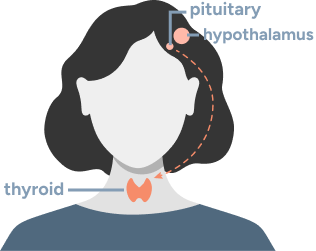
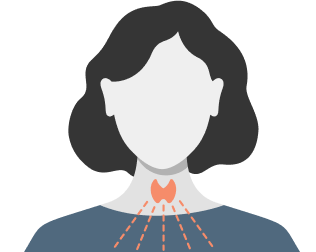
The thyroid continues to produce the T4 and T3 hormones, which helps regulate many important body functions.
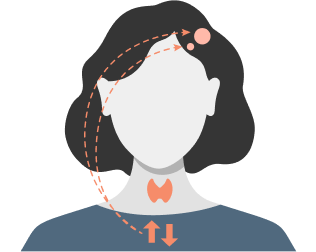
This communication between the pituitary gland and the thyroid continues in a loop as thyroid hormone levels signal to your pituitary gland to produce less or more TSH.
TSH and an incorrectly functioning thyroid
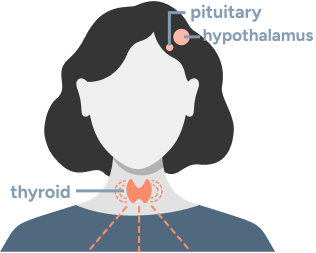
The pituitary gland sends out TSH to the thyroid, but the thyroid is unable to produce enough thyroid hormones.
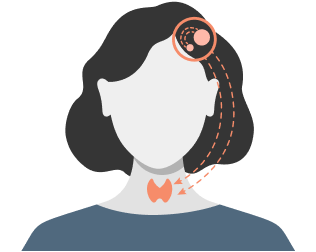
Because of the low levels of thyroid hormones, the pituitary gland sends out more TSH.
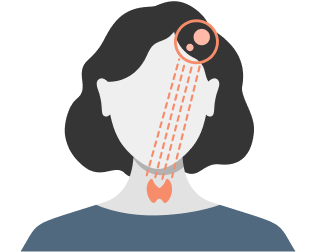
Despite the pituitary gland sending out more and more TSH, the thyroid continues to function incorrectly. This balance of high levels of TSH and low levels of thyroid hormones indicates hypothyroidism.
Hypothyroidism from head to toe*
Take your time exploring this overview of hypothyroidism symptoms. Do you experience any? If so, talk to your doctor. They may want to check your T4 or TSH levels using the test described below.
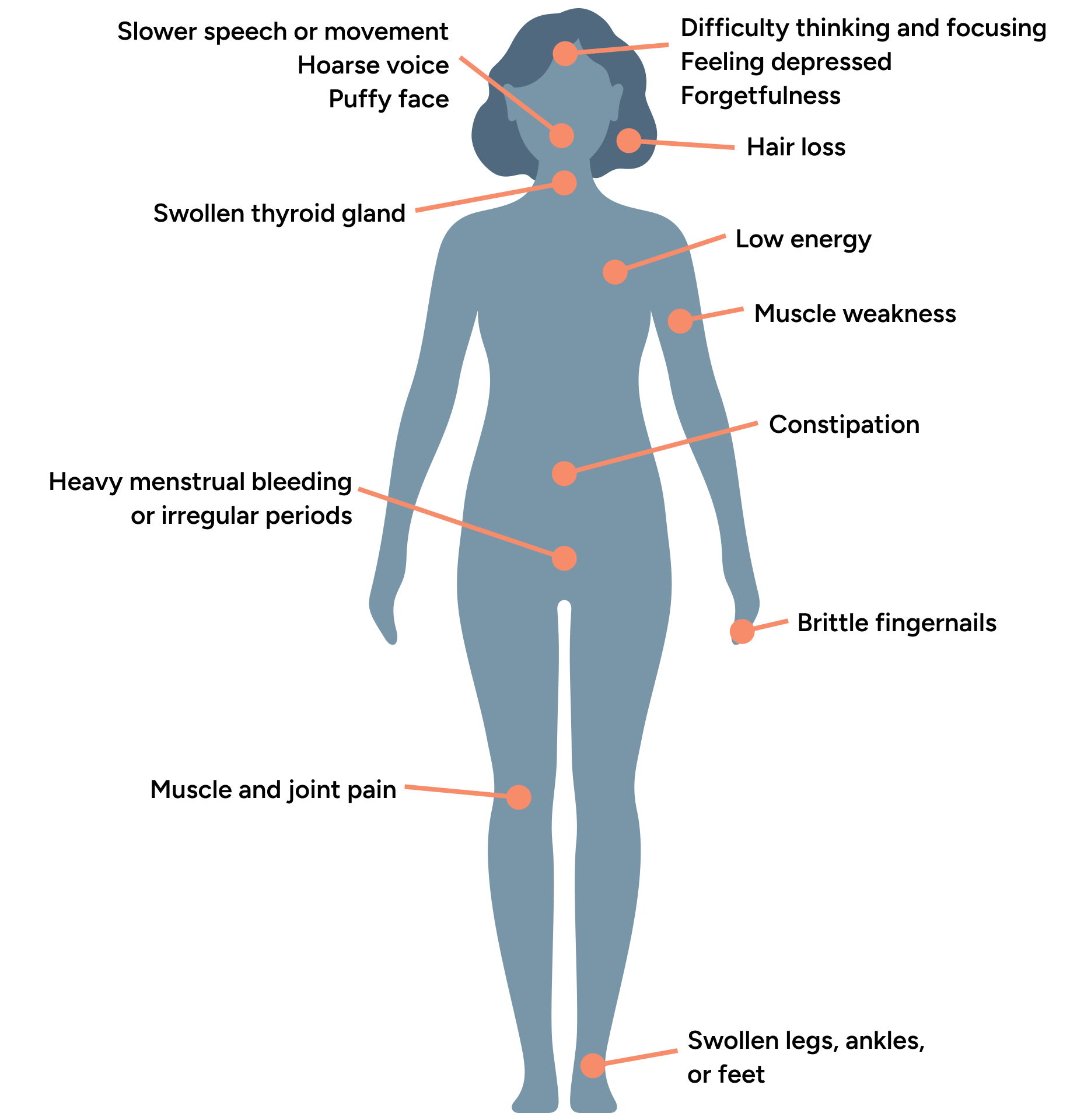
*This is not a comprehensive list of symptoms.
Because these symptoms may represent conditions other than hypothyroidism, be sure to talk to your doctor.

The TSH test
A TSH test is used to check the level of TSH in the blood. Your TSH level can indicate if your thyroid gland is working properly.
Once you have been diagnosed with hypothyroidism and your doctor has prescribed a treatment plan, it’s important to have your TSH tested periodically to determine if any adjustments need to be made to your dose or how you take your medication.
Real Synthroid stories
Facing hypothyroidism: Elisa’s story
Elisa shares her journey, from getting diagnosed to starting—and continuing—treatment with Synthroid, and living with hypothyroidism.

Myths vs Facts





